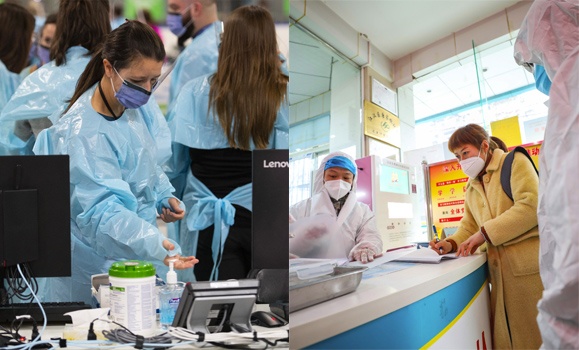»ĆÉ«Ö±˛Ą faculty and grad students are frequent contributors to , an online media outlet that provides researchers and academics with the opportunity to share relevant, informed articles and editorials with a wide audience. (»ĆÉ«Ö±˛Ą is a founding partner in The Conversation Canada.) Articles from The Conversation are available to news outlets as open source content and re-published in outlets around the globe.
While we typically re-publish many Dal contributions to the Conversation here on Dal News, we wanted to collect together some of the COVID-19 articles from Dal researchers that have been shared in recent weeks. For more Dal contributions to The Conversation, .
Howard Ramos, Sociology and Social Anthropology, and Jill Grant, Planning (with Alan Walks of the University of Toronto
April 1
It's time to reset Canada's housing policies to make cities more affordable and more socially just places to live.
Sylvain Charlebois, Agri-Food Analytics
March 29
One positive thing coming out of pandemic-related self-isolation could be that people will spend more time in their kitchens, a place where fewer Canadians have ventured in recent years.
Martha Paynter, Nursing
March 17
Rapidly decreasing the prison population by letting people out is a public health imperative as governments for solutions to slow down the spread of the COVID-19 virus.
Kevin Quigley, MacEachen Institute for Public Policy and Governance
March 17
As response to COVID-19 moves from a learning phase to an operational phase, lessons from the 2009 H1N1 pandemic can inform Canada's action plan.
Françoise Baylis, Bioethics
March 16
Canadians have a reputation for compassion; in the current COVID-19 pandemic, this means helping each other by staying away.
Alyson Kelvin, virologist (with Jason Kindrachuk of the University of Manitoba)
January 30
Social media has allowed researchers around the world to collaborate and co-ordinate their efforts to fight the outbreak and contain its spread.

